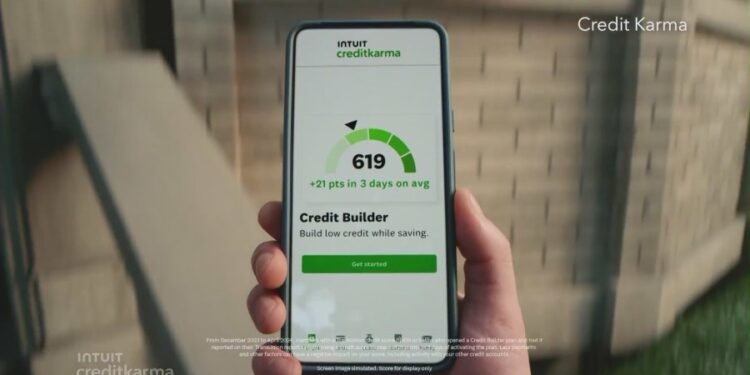Turn on the TV these days, and you’ll almost certainly encounter an ad for a service offering to repair bad credit.
Maybe you’ve seen an ad for Intuit’s CreditKarma. It shows a guy who finds his dream apartment but can’t get it because of poor credit.
In just seconds, he watches on the app as his credit score goes up, making the apartment available.
A CreditKarma spokesman acknowledged to me that this is a fanciful way of depicting how the app’s Credit Builder service works, and boosting your score actually takes time.
Still, it’s a tempting pitch for anyone buried in debt, with a credit score that all but paints you as a deadbeat.
“When someone has really poor credit, it can affect their ability to get a job, to rent an apartment, not to mention to get a credit card at a decent interest rate or to qualify for a car loan,” says Teresa Murray, who handles consumer finance issues for the U.S. Public Interest Research Group.
She says a number of services and apps have popped up in recent years with promises of alleviating debt and fixing bad credit.

“Clearly the target is people who are really desperate and probably just not all that well informed” Murray observes. “And they must think that there’s some kind of quick fix that they can get.”
Americans are carrying a record $1.14 trillion in credit card debt, with the average balance running $6,300.
There are different credit scores out there. The most common is the FICO score, which ranges from 300 (lousy credit) to 850 (excellent credit).
There’s nothing illegal per se about credit-repair services. But the Consumer Financial Protection Bureau warns that some may be scams. Watch out in particular for up-front fees or promises that seem too good to be true.
Pico Rivera resident Marlon Ibarra, a sales analyst for a tech company, ran up $93,000 in debt on about a dozen credit cards.
He missed payments. His credit score plunged to the low 500s. He was in serious financial trouble with lenders.
Ibarra says he checked out various services and apps that claimed they could help someone as deep in debt as him. Some wanted money in advance. Others claimed boosting his credit score would be fast and easy.
He ended up with a nonprofit credit counseling service called Money Management International, which worked with creditors to lower his obligations and interest rates, and created a payment plan that gradually but steadily boosted his credit score.
It ultimately cost Ibarra nearly $2,000 in fees, which he considers money well spent. He’s now debt-free and his credit score is in the blue-ribbon 800s. Banks are lining up for his business.
“I went from everyone in the credit industry laughing at me to now I can pretty much get anything that I want,” Ibarra told me.
His advice to others facing financial difficulties? Do your homework. There’s help available, but you need to find an app or service that meets your needs.
“I could have spent twice as much with someone else and got half the service,” Ibarra says.






